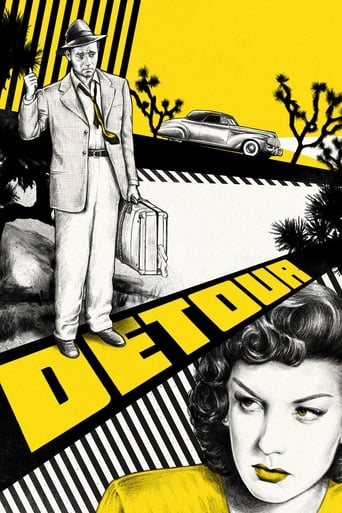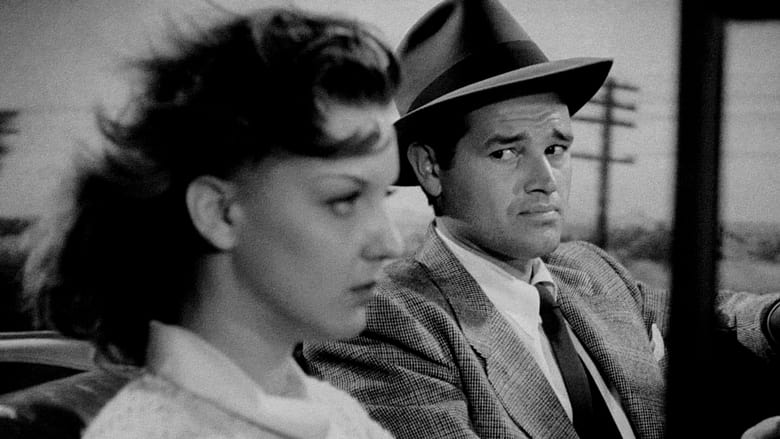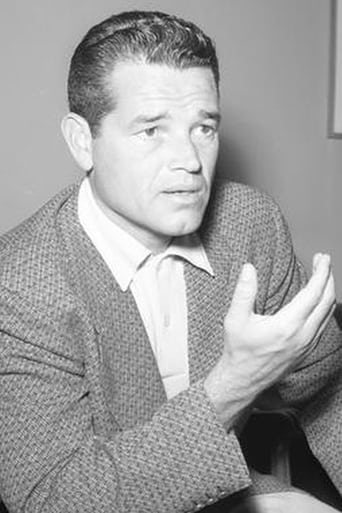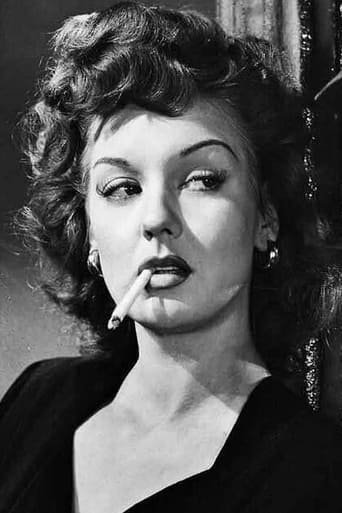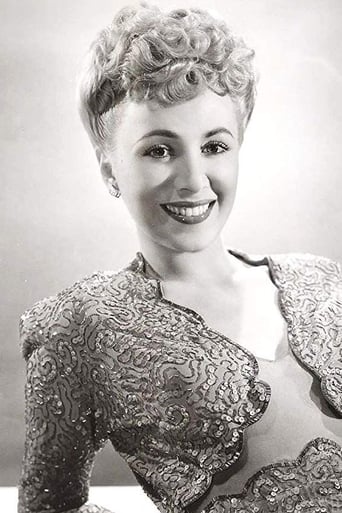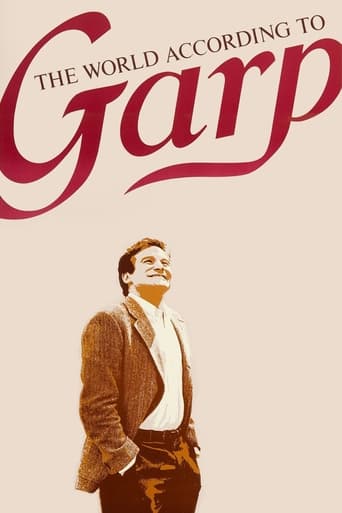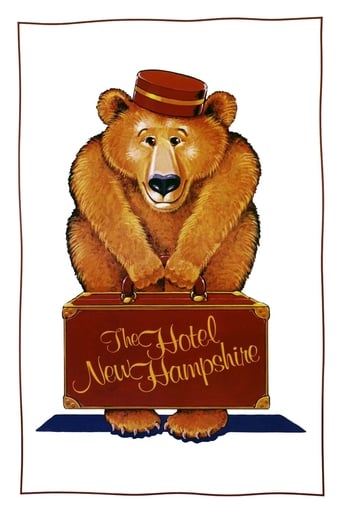Detour (1945)
The life of Al Roberts, a pianist in a New York nightclub, turns into a nightmare when he decides to hitchhike to Los Angeles to visit his girlfriend.
Watch Trailer
Cast
Similar titles

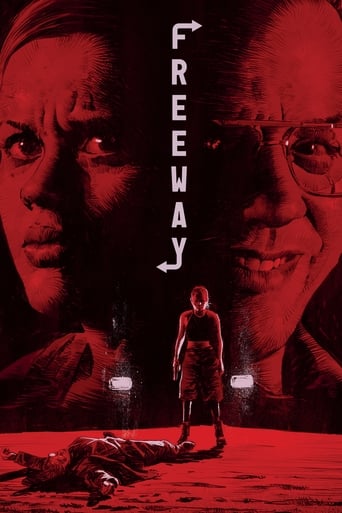
Reviews
The acting is good, and the firecracker script has some excellent ideas.
It's the kind of movie you'll want to see a second time with someone who hasn't seen it yet, to remember what it was like to watch it for the first time.
One of the worst ways to make a cult movie is to set out to make a cult movie.
The movie's not perfect, but it sticks the landing of its message. It was engaging - thrilling at times - and I personally thought it was a great time.
Apparently, "Detour" follows closely the 1939 novel by Martin Goldsmith of the same title. Goldsmith also wrote the screenplay. The general plot idea is good for film noir, but this story played out on the screen is just too hokey. I watched this movie with no more inkling of what it was about than I got from its promos. Afterward, I read that this film has been preserved for posterity and has become something of a cult classic. I can't imagine why, in either case – unless it would be for the technique of voice over for an actor's thoughts. There are any number of other noir films that have superb plots, casts and productions. There are two things I noted of historical significance in this film. The first is the long distance telephone connections that used to take some time for coast-to-coast calls. The second is the border check stations in California. I can't think of another movie that shows this. For many years, people entering California were not allowed to bring fruits or vegetables in with them. Vehicles had to stop at road entry stations to answer questions, have their vehicles checked and discard any fruits or vegetables they had with them. The lines at these check stations could sometimes be quite long, and the check stations operated almost like passport stations between countries well into the 1960s. Today, California still has control stations, but many fruits and vegetables for personal consumption are allowed, and the process is much quicker. "Detour" shows Al entering California from Arizona at a highway checkpoint where there are no other vehicles in sight. Even in 1939, there would have been more traffic. The low budget, cheap shooting, and minor cast of "Detour" are emblematic of the story quality. And, that's just hokey, with one incongruity after another. The viewer is first drawn to the tone of Al Roberts (played by Tom Neal) as he ruminates over coffee in the roadside diner. The "poor me, life is tough" message sets the stage for the film. The guy's got a real chip on his shoulder. Then, a flashback takes us to New York where he's playing piano while the love of his life sings. That's Claudia Drake playing Sue Harvey. And, we're led to believe that he's a masterful pianist. But whoa – he's got the chip on his shoulder already. Times are tough, they're just scratching out a living playing in a cheap nightclub. Then Sue wants to go to California to try to break into movies. Enter incongruity. But not Al – he wants to make it playing in a concert at Carnegie Hall. He loves Sue and wishes her well in California. Any number of other movies show couples in love traveling West together. The incongruities begin to pile up. We see Al playing in the same nightclub. The patrons are sitting around tables like wooden dummies. Al plays a medley of virtuoso numbers on the piano. He gets a $10 tip from a client. It's a big one. That $10 in 1939 (the setting of the film) would be more than $175 in 2017 dollars. More incongruities. Apparently, wealthy people frequent the cheap nightclub. There are no scenes of Al trying out, pounding the pavement, or playing with an orchestra or in a concert hall. Love strikes again and he misses Sue. He calls her and sets out to join her in California. He hocked everything and has just enough money for food. But he can't afford a train or bus ticket? What did he do with all of his tips and pay – or was he living on the high hog? He could have saved enough for an $80 train fare from New York to L.A. Al was so preoccupied in his thoughts that he didn't pay attention to Charles Haskell Jr. (played by Edmund MacDonald) when he asked twice for Al to get his box of pills out of the glove box. He saw him take the pills, but he didn't think anything of it. Yet when he opens the door after he wasn't able to awaken Charles, he thinks Charles dies when he falls out of the car and hits his head on the ground. And the ground is wet and muddy from the rain. So, he doesn't have enough sense to realize that the guy had a heart problem, and the pills probably were strychnine. OK, so he was dumb in the ways of life. Then, instead of doing what normal people would have done – driven to the next place with a police station, he conjures up all sorts of "reasoning" of wrongdoing. He justifies in his mind what he's about to do. The incongruities continue throughout this film. The last big one being his pulling on the telephone cord under the door instead of yanking the cord out of the wall on his side of the door. Or did he think he could pull the phone through the door? No, the acting isn't that good. Ann Savage as Vera makes a good Bette Davis impersonation. But this plot in this film is so contrived and hokey that it's almost laughable. In real life, Tom Neal's personal story is more interesting than this movie, and much more like film noir. Neal came from a wealthy family and was a champion boxer in college. He attended Northwestern University and got a law degree from Harvard. He got mixed up with some underworld characters even as he started out in Hollywood. He severely beat up actor Franchot Tone. Two of his three wives died and he spent several years in prison for killing his third wife. He died of heart failure at age 58, less than a year after his release from prison.
Life is about detours--unexpected deviations from one's expected path. "Detour" is the story of Al Roberts (Tom Neal), a pessimist who, try as he might, just cannot seem to get back on track after a series of coincidences and bad luck take control of his life. Along the way, he meets Vera (Ann Savage)--an opportunistic harpy, who bears the psychological scars of a harsh life."Detour" is a surprisingly effective film noir tale. Produced by PRC with a limited budget and "B" level talent, it is fun to watch. German director Edgar Ulmer gives an indication what he might have achieved with a major studio and a big budget. Ulmer's stylish camera work and storytelling combines with the active but effective soundtrack by Erdody to create an atmospheric immersion into Al Robert's world. Usually, voice-overs are to be eschewed, but "Detour" exploits the voice-over of Al Roberts in flashback, pulling the viewer deeper into the story with his philosophical observations and his fatalistic insights.This is a film I could watch multiple times with enjoyment. Any discussion of noir basics should include this little-known gem.
I'm not as fond of DETOUR as some of the other reviewers on here, purely because I found it an entirely depressing viewing experience. It's one of the darkest film noirs out there, leaden with a dreadful atmosphere throughout, full of foreboding, darkness, and misery. And I guess those are the reasons why it's so well remembered.The film is directed by THE BLACK CAT director Edgar G. Ulmer in much the same way he would direct one of his horror pictures. Tom Neal makes for a rather unlikeable hero, trying desperate to hitch-hike from one end of the country to the other and coming unstuck when he falls in with a seemingly friendly driver. He takes a chance and thinks he's made it when in fact he's just about to meet Ann Savage's Vera.Savage is the stand-out feature of this film and I hated every element of her angry, vengeful, selfish character. She's the worst femme fatale I've ever seen, a noxious character utterly devoid of redeeming features, to the degree that I found the movie hard to watch whenever she was around (which is most of the time). I admit that I thought the climax was excellent given what's come previously, although the only thing I came away from this feeling was relief, relief that it was over.
Detour stars Tom Neil as Al Roberts, a hitch-hiker trying to make his way from New York to LA to be with a girl that had left him behind for Hollywood. Just hours away from his destination he gets picked up by Charles Haskell, who's willing to drive Roberts to his destination but suddenly dies in his sleep on the way. Detour is a hugely impressive film when you consider the meager $30,000 budget it was allowed by PRC. (a studio I've never even heard of) I didn't realize this when I started the film. I thought something was a bit off, but I didn't manage to figure out it was a budget flick until I had reached the ending. The film manages to carve a well-rounded narrative out of four actors, three sets, and the director's car. That's definitely worth admiring. Tom Neil gives a good performance, but he's completely overshadowed by Ann Savage as the film's femme fatale Vera. Vera is a character that feels like she was written to come off as real rather than cinematic. She's a good looking girl with a short temper and an angry demeanor. She didn't have the obnoxious lighting other femme fatales used that made them look glow in the dark and the writers didn't bother trying to shoehorn any completely out of place romance into the film, she was just a tough chick looking to make some quick cash off Roberts, a frightened, easy target. Ann Savage seemed like she was delivering her lines exactly how Vera would say them. She was harsh and irritable, and when she got the upper hand on Roberts she was smug and arrogant. Her performance was persuasive; she was dynamite, baby.
